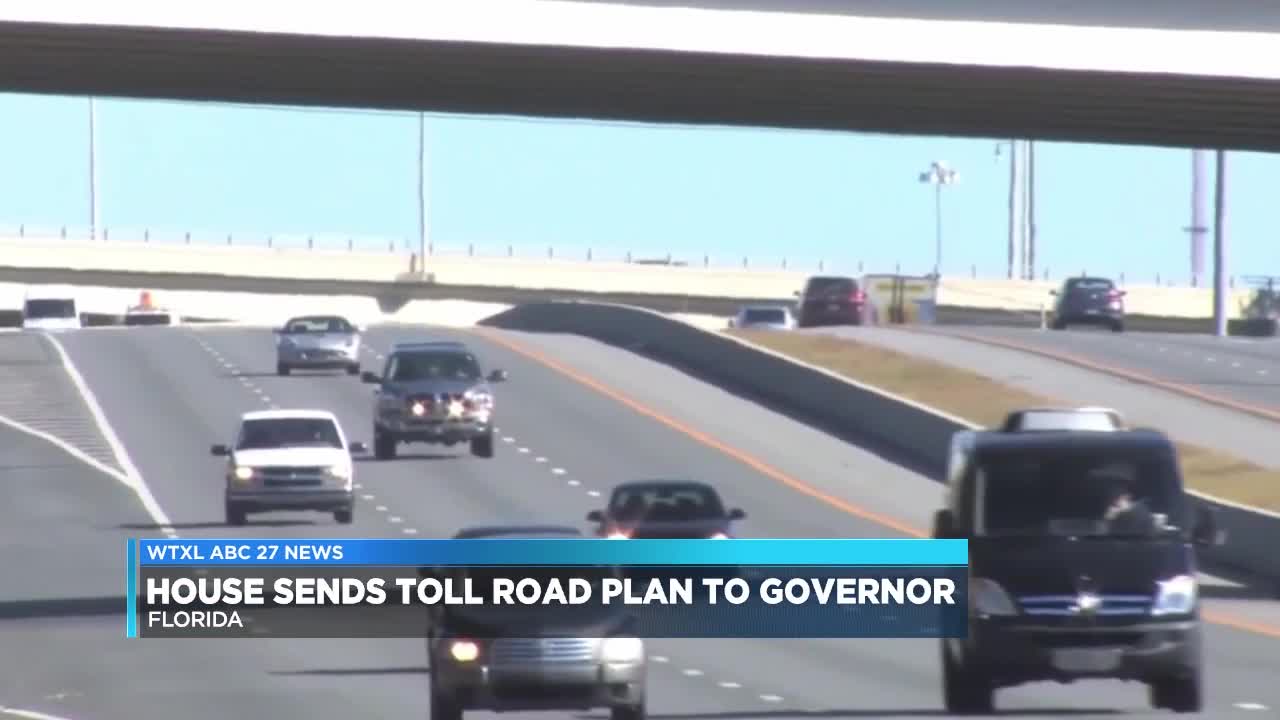TALLAHASSEE, Fla. — A plan for three new and expanded toll roads is traveling to Gov. Ron DeSantis over the concerns of Democrats about the potential for exorbitant costs and sprawling development across environmentally sensitive lands and farm fields.
While the governor has not his announced his intentions, environmentalists quickly urged him to veto the legislation.
The House voted 76-36 on Wednesday to give final approval to the measure (SB 7068), a priority of Senate President Bill Galvano, R-Bradenton. The plan includes setting aside $45 million next fiscal year for roads that aren’t expected to be completed for at least a decade.
Annual funding is expected to reach about $140 million in coming years for the plan, which seeks to extend the Suncoast Parkway from the Tampa Bay area to the Georgia border; extend the Florida Turnpike west to connect with the Suncoast Parkway; and create a new transportation corridor, including a toll road, from Polk to Collier counties.
The bill, which passed the Senate last week, would require separate task forces to study the environmental and economic impacts of the three roads, which are intended to help underserved rural communities and provide new hurricane-evacuation options.
“We are setting out a platform, a way forward, on three new corridors that we have adequate hurricane-evacuation routes, that we have adequate trade and logistics, and that we’re able to absorb the vast number of people that are moving to our state,” said Rep. Jay Trumbull, a Panama City Republican who handled the bill in the House.
Meanwhile, Democrats echoed earlier warnings from environmental groups that the plan will destroy wetlands and said the focus should be on fixing already-existing roads. They also said lawmakers should get the results of the task force studies before putting up the funding.
“We know that there is congestion problems in Florida. We know that it is hard to get from Tampa to Orlando, and that sometimes, especially when the snowbirds are leaving, it’s hard to get up I-75 into Georgia,” said Rep. Margaret Good, D-Sarasota. “But let’s figure out, should we widen I-75? Should we put in a light-rail? Maybe we need better airport infrastructure so that we can travel by air. Let’s do some thoughtful planning and some thoughtful discovery on this before we pass a bill that is going to write a check in bonding in our taxpayer dollars for at least $1 billion.”
DeSantis, who has raised concerns about the impact of toll roads on working-class Floridians, hasn’t indicated what he will do with the bill once it reaches his desk.
“Gov. DeSantis is reviewing all bills sent to him, will let you know,” DeSantis spokesman Helen Ferre replied to a question Wednesday after the House voted.
Environmental groups, led by the Sierra Club and 1000 Friends of Florida, are fighting the projects, which they say would lead to sprawl, harmful wildlife impacts and water pollution.
“This is why Floridians are so cynical about government,” said Jonathan Webber, deputy director of the Florida Conservation Voters. “Legislative leaders let billionaire landowners and high-powered lobbying groups treat taxpayer dollars like their personal piggy bank. Meanwhile working families across the state are struggling to create healthy and safe communities for their kids. Just imagine the amount of good we could do if this money was spent on cleaning our water, building more parks, or finding solutions to the growing climate crisis.”
In a statement after the House vote, Galvano called the plan “historic legislation.”
“These new infrastructure corridors will help Florida strategically plan for future population growth, revitalize rural communities, and enhance public safety, while at the same time protecting Florida’s unique natural resources and habitats,” Galvano said.
The task forces would be comprised of state officials, local government and planning officials and a few representatives from environmental groups. They are expected to complete their work by Oct. 1, 2020. The plan calls for construction to begin by the end of 2022 and the roads to open to traffic before Dec. 31, 2030.
The plan calls for spending $45 million next fiscal year, with the amount growing to $90 million in the 2020-2021 fiscal year, about $135 million the next year and a recurring amount of $140 million starting in the 2022-2023 fiscal year.
The bill has backing from the Florida Chamber of Commerce, the Florida Ports Council, the Florida Trucking Association and the Asphalt Contractors Association of Florida.
But Rep. Barbara Watson, D-Miami Gardens, said the studies should be completed before the funding is approved.
“We must be certain that when we spend billions of tax dollars of the constituents of this state, we do an honest job,” Watson said.



